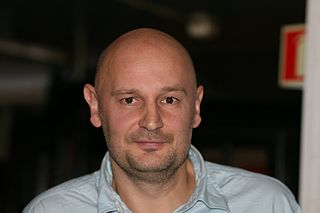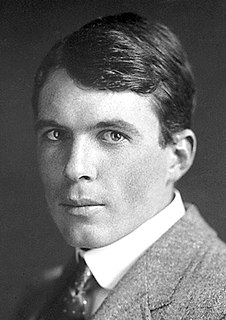A Quote by Stephen Hawking
If we do discover a complete theory, it should be in time understandable in broad principle by everyone. Then we shall all, philosophers, scientists, and just ordinary people be able to take part in the discussion of why we and the universe exist.
Related Quotes
Wheeler hopes that we can discover, within the context of physics, a principle that will enable the universe to come into existence "of its own accord." In his search for such a theory, he remarks: "No guiding principle would seem more powerful than the requirement that it should provide the universe with a way to come into being." Wheeler likened this 'self-causing' universe to a self-excited circuit in electronics.
I am not sure just what Marx had in mind when he wrote that "philosophers have hitherto only interpreted the world in various ways; the point is to change it." Did he mean that philosophy could change the world, or that philosophers should turn to the higher priority of changing the world? If the former, then he presumably meant philosophy in a broad sense of the term, including analysis of the social order and ideas about why it should be changed, and how. In that broad sense, philosophy can play a role, indeed an essential role, in changing the world.
My fear is that that's what's going to happen with robotics and the military. Importantly, this discussion has to involve not just the scientists, but also the political scientists. It's got to be a multidisciplinary discussion. You can't have it be another repeat of what happened with the people working on the atomic bomb.
There is, therefore, no difficulty in answering such questions as these. What cause was there why the Universe was placed in such a part of Space? and, Why was the Universe created at such a Time? for, if there be no Space beyond the Universe, it was impossible that it should be created in another place; and if there was no Time before, it was impossible it should be created at another time.
The question is absurd: when you ask, 'If God is both all good and all powerful, why then does He allow suffering?', what you are really asking is, 'If God is both all good and all powerful, why then can He not make me (the questioner) - who is just as much a part of a universe in which there is suffering as is any other part - be at the same time the exact same questioner, but one who is now part and parcel of a universe in which there is no suffering?' Which, reduced down, is the same thing as asking, 'Why can there not be, at the same time, X and the preclusion of X?'
We shall never meet, but there is something I want you to know. My time is not the same as your time. Our times are not the same. And do you know what that means? That means that time does not exist. Do you want me to repeat that? There is no time. There is a life and a death. There are people and animals. Our thoughts exist. And the world. The universe, too. But there is no time. You might as well take it easy. Do you feel better now? I feel better. This is going to work out. Have a nice day.
What I do is work for three or four years and then I take a year off, and then I come back again and work for three or four years and then take another year off. It is not about just working and then writing for a year. That is not how it is structured. It is about doing very conscious goal-driven activities for four years and then taking a year off in complete surrender to discover facets of myself that I don't know exist and exploring interests with no commercial value associated with them at all.
Philosophers should consider the fact that the greatest happiness principle can easily be made an excuse for a benevolent dictatorship. We should replace it by a more modest and more realistic principle - the principle that the fight against avoidable misery should be a recognized aim of public policy, while the increase of happiness should be left, in the main, to private initiative.
Another curious aspect of the theory of evolution is that everybody thinks he understands it. I mean philosophers, social scientists, and so on. While in fact very few people understand it, actually, as it stands, even as it stood when Darwin expressed it, and even less as we now may be able to understand it in biology.
Many philosophers say it's impossible to explain our conscious experience in scientific, biological terms at all. But that's not exactly true. Scientists have explained why we have certain experiences and not others. It's just that they haven't explained the special features of consciousness that philosophers care about.
I'm So Sick is about how the world can sometimes be a sick and messed up place and how that influences us and tells us how we should live or who we should be. People do things just 'cause everyone else does and then they wonder why they feel empty all the time. Someone who has a firm stance in what they know to be true will empower empty followers to discover who they are as individuals with purposes and this creates leaders with voices of their own.
I feel very strongly indeed that a Cambridge education for our scientists should include some contact with the humanistic side. The gift of expression is important to them as scientists; the best research is wasted when it is extremely difficult to discover what it is all about ... It is even more important when scientists are called upon to play their part in the world of affairs, as is happening to an increasing extent.
As we shall see, the concept of time has no meaning before the beginning of the universe. This was first pointed out by St. Augustine. When asked: What did God do before he created the universe? Augustine didn't reply: He was preparing Hell for people who asked such questions. Instead, he said that time was a property of the universe that God created, and that time did not exist before the beginning of the universe.



































